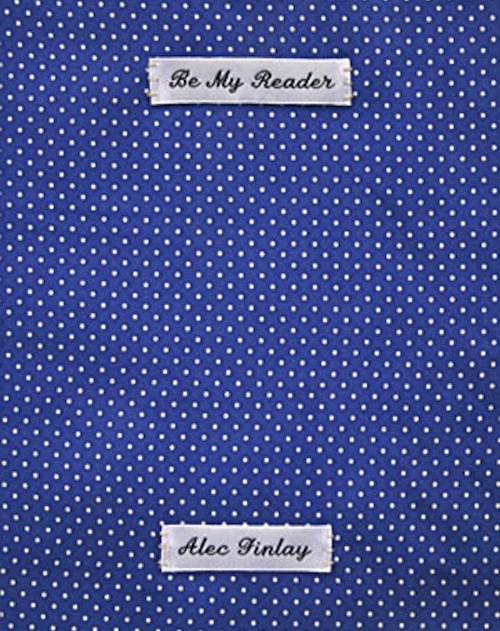The Generative, the Lyric, and Wittgenstein's Norway: Alec Finlay's Be My Reader

The Scottish-born artist, publisher and poet Alec Finlay--yes, son of Ian Hamilton Finlay--has a new book out called Be My Reader (good one!). It's reviewed over at Magma Poetry by Tony Williams. A bit about the book from the Shearsman release, so ya know:
Be My Reader is a gathering of texts made and found by Finlay over the past two decades, touching on philosophy, landscape, dance, football, travel and technology. Affectionate, celebratory and sensitive by turns, it includes such key texts as his popular homage to Robert Creeley, 'I Know A Poem', and the long poem-mapping of Wittgenstein's house in Norway...Formally adventurous and restlessly curious, Be My Reader is a unique confluence of contemporary generative forms and the lyric voice.
Sounds amazing. Williams writes more on the work informed by Wittgenstein:
The book opens with by far its longest poem, the sequence ‘The Wittgenstein House (Skjolden)’, about a hut on Norway where the philosopher stayed in 1914. The sequence is formally various, but at its heart is the tercet, used sometimes with an indented third line which recalls Horace’s odes. That seems apt, given the subject matter of rural retreat and contemplation:
All the small fields meet up in corners, each with its own suitable barn— stone huts, wood shacks or corrugated lean-tos; stacks of felled trimmings like pencils in a box and neat xylotheques of peeling birch logs.Wittgenstein’s thought is never directly addressed, but that in itself seems apt: the close attention to details feels rather like his attachment to individual thoughts and propositions in opposition to larger theories. The poem’s subject (sometimes I, sometimes you) is visiting, perhaps on a pilgrimage:
You’ll see the walled harbour where his row boat anchored. Follow the spray-marked ‘W’sAccumulating alongside these immediate details is a sense of the context, in terms of both the speaker’s and Wittgenstein’s personal lives. The two figures become entangled; it’s partly a poem about how the searcher intrudes on and even becomes what he is searching for; and it’s partly a poem about, yes, place, but place as a blank space in which thinking and being can begin.
After this long and capacious poem the mind is well prepared to approach the generally much shorter poems which follow. There’s a four-word poem with a 22-word title, a one-word poem, plenty of only two lines, and several where the whole poem is simply the delivery of a single phrase or idea or utterance. There are some ‘fitba’ poems very much after the style of Tom Leonard. Sometimes the very short poems simply made me smile (‘The Scottish app’: ‘i-dears’), and it’s a delicate question whether this is enough for a poem; I think can be, but not always. ‘The Prime Minister has given us his word’ reads in full, ‘This is going to be/the best worst time/that we’ve ever had,’ and not only the political playing to the gallery, but also simply the shortness, prevent the development of a poem which is surprising or challenging or breathtaking.
You can read a sample PDF here, and the full review.


